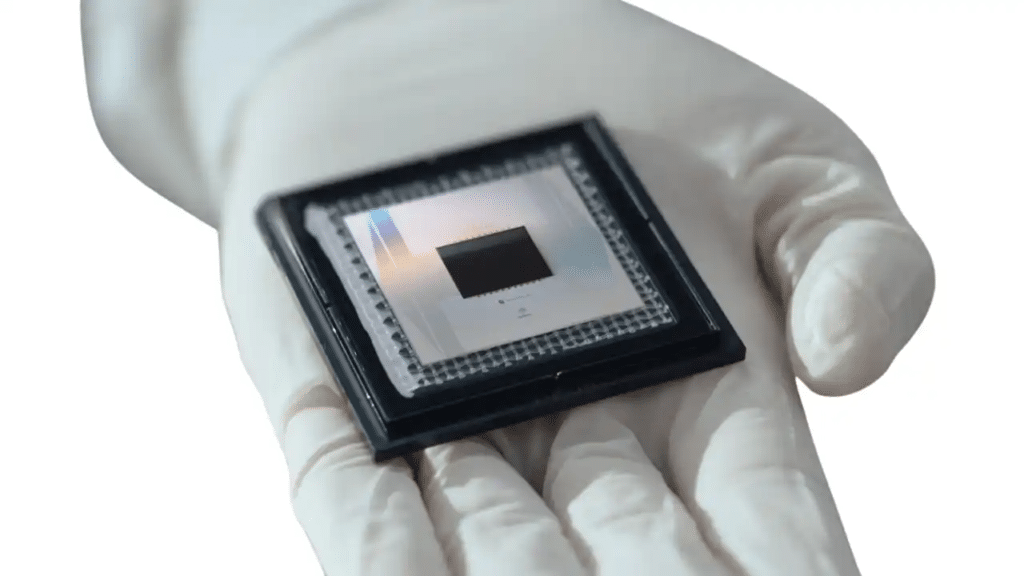Google Willow, Once more pushed the boundaries of technology with its latest advancement in quantum computing: the Willow chip. This innovative quantum processor showcases outstanding speed and efficiency, making it a potential game-changer in numerous industries, such as data security and cryptocurrency. Yet, the emergence of such formidable computational power prompts an important question—might quantum computing make Bitcoin and other cryptocurrencies irrelevant?
In this article, we will examine the ramifications of Google Willow chip for the future of cryptocurrency, assess the potential risks it poses to current cryptographic frameworks, and consider whether quantum-resistant algorithms may provide a viable solution.
What is Google Willow Quantum Chip?
Google Willow chip represents a cutting-edge quantum processor engineered to execute highly intricate calculations at astonishing speeds. As stated by Google, Willow can tackle problems in less than five minutes that would require traditional supercomputers over 10 septillion years to resolve. To put this into perspective, that duration exceeds the entire lifespan of the universe by an immense factor.
Moreover, Willow’s capabilities extend beyond mere speed; its advanced error correction features mark a significant advancement in the field. For many years, one of the primary obstacles in quantum computing has been ensuring precision, given the inherent instability of quantum bits (qubits).

How Does Quantum Computing Threaten Cryptocurrency Security?
Central to cryptocurrencies such as Bitcoin is a cryptographic framework designed to be nearly impervious to conventional computing methods. However, quantum computers like Willow possess the potential to decipher these cryptographic keys at an extraordinary pace.
To clarify this concept, consider the analogy of a maze. A conventional computer navigates through each path sequentially, while a quantum computer has the ability to explore all paths at once, leading to a solution in a fraction of the time.
This advanced capability suggests that Google Willow quantum computers could potentially compromise Bitcoin’s encryption in the future. However, there is no need for immediate concern—it is not an imminent threat.
Are Cryptocurrencies Facing an Immediate Threat?
Although the Google Willow chip marks a significant advancement, experts concur that cryptocurrency systems are not currently at risk. Tim Hollebeek, a strategist at DigiCert, reassures us that despite the potential of the Willow chip, actual threats remain largely hypothetical.
For quantum computers to become a genuine threat, they would need to achieve stability with millions of physical qubits—a goal that is still likely a decade or more away.
Google’s View on the Coexistence of Quantum Computing and Cryptography
Google expresses assurance that Google Willow does not currently threaten modern cryptographic systems. A representative from Google emphasized that utilizing existing quantum technology to compromise contemporary cryptographic algorithms remains unattainable.
Park Feierbach, a specialist in decentralized finance technology, corroborates this assertion. He notes that even if Willow were to attempt to breach Bitcoin’s cryptography today, the process would take longer than the current age of the universe.
The Pursuit of Quantum-Resilient Algorithms
The cryptocurrency sector is actively engaged in addressing these challenges. Researchers and cybersecurity professionals are diligently working on developing ‘quantum-resilient’ algorithms—encryption techniques specifically designed to withstand attacks from advanced quantum computers.
The National Institute of Standards and Technology (NIST) has already introduced several of these algorithms, and major technology companies, including Google, are partnering to standardize and implement them on a global scale.
The Importance of Post-Quantum Cryptography (PQC)
Post-Quantum Cryptography (PQC) encompasses cryptographic methods specifically designed to resist attacks from quantum computers. Taqi Raza, a professor at the University of Massachusetts Amherst, posits that new cryptocurrencies tailored with PQC principles may be developed in the future.
While the mechanisms of cryptographic security may evolve, the fundamental idea of secure digital currency is expected to persist.
Can Quantum Computing Benefit Cryptocurrencies?
Interestingly, quantum computing presents not only a challenge but also a potential advantage. Jeremy Allaire, CEO of Circle, asserts that advancements in quantum technology could enhance blockchain infrastructures.
As quantum computing has the potential to compromise existing cryptographic systems, it also offers the possibility of establishing new, nearly unbreakable security measures. This dual potential suggests that cryptocurrencies could achieve greater security in a post-quantum landscape.
How Much Time Remains Before Quantum Becomes a Genuine Threat?
Experts project that we are approximately 10 to 15 years away from quantum computers posing a significant risk to the security of cryptocurrencies. By that time, it is anticipated that quantum-resistant cryptographic systems will likely be implemented.
Therefore, despite the innovative nature of the Willow chip, there is no urgent reason for concern within the cryptocurrency sector.
The Broader Implications of Quantum Computing
Although cryptocurrencies are a prominent subject of discussion, the implications of quantum computing extend well beyond digital currencies. Experts foresee advancements in fields such as artificial intelligence, healthcare, energy efficiency, and more.
Quantum computing holds the potential to transform entire sectors, enhancing areas ranging from medical research to climate modeling.
Preparing for a Quantum Future
Governments, corporations, and technology leaders are actively gearing up for the quantum era. This includes advancements in quantum-resistant encryption and breakthroughs in blockchain technology, establishing a solid foundation for the future.
For investors and cryptocurrency advocates, the key takeaway is to remain informed, flexible, and confident that innovation will address new challenges as they arise.
Read More: Russia’s mRNA-Based Cancer Vaccine: A Revolutionary Breakthrough in Cancer Treatment
Conclusion
Google Willow chip represents a significant milestone in quantum computing. Although it brings legitimate concerns regarding the security of cryptocurrencies, the actual threat is still largely theoretical at this stage. The cryptocurrency sector is proactively developing quantum-safe algorithms, and experts are optimistic about achieving a secure future.
Quantum computing offers a substantial opportunity, transcending the notion of being just a challenge. It has the capacity to unlock new possibilities across multiple industries. It is important to recognize that quantum technology extends beyond its implications for cryptography; it is also vital in delivering innovative solutions.